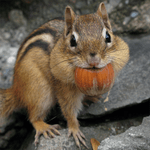Mushy Old Pumpkins
Six Eco-Friendly Ways to Recycle Pumpkins
By Timothy Johnson
Pumpkins are bright, beautiful, and an essential part of Halloween. While they are ripe, they are utilized for a variety of things during the harvest season. It’s not hard to notice that you’ll without a doubt find pumpkins every way you turn.
However, after celebrations of National Pumpkin Day and Halloween are over, pumpkins may start looking a bit droopy—the carved smile turning into a grimace, the cheerful orange becoming somber. You know when it’s time for the pumpkins to go. You may not know where they don’t go: to the landfill. Pumpkins are 90% water and add tons of water to the landfills, contributing to the problem of groundwater contamination. As pumpkins break down, they create methane (CH4), a greenhouse gas that is more powerful than carbon dioxide (CO2).
With that being said, here are six ways to put the pumpkins to good use while respecting the environment.
1. Compost the pumpkins
Pumpkins are filled with nutrients. The water that is harmful to the landfill is beneficial to your compost pile. Clean out the seeds so you don’t have unwanted pumpkins growing in the pile. Chop up the rind to speed up decomposition and bury it under dried leaves or sawdust to keep hungry critters away.
2. Feed your furry visitors
You may not want the critters raiding your compost pile, but that doesn’t mean you can’t feed them. Many backyard animals (e.g., deer, rabbits, squirrels, woodchucks) get that “pumpkin feeling” in the fall, and they can’t pull up to a Starbucks like we can. You can leave the jack-o-lantern out, as is, for your furry friends to snack on, or cut it up into pieces and scatter them about.
3. Feed your feathered friends also
Slice the pumpkin in half horizontally, fill it with birdseed and hang it from a tree branch or railing. You can also cut out a large, oval opening at the front of the pumpkin and clean out the inside. The birds will have a soft, cozy place to land in and have a snack.
4. Eat the seeds
Pumpkin seeds are bursting with vitamins and nutrients. Don’t throw them away. Roast the seeds by first using a paper towel to blot away any pulp, then spread the seeds out on a paper bag to dry overnight. Next day, spread the seeds out on a cookie sheet and roast for no longer than 20 minutes. Season as you like—experiment. Bag the roasted seeds to have ready-to-go snacks or use them in salads, soups, burger mix. Try sprinkling them on your cereal.
5. Eat the skin
You may have to watch that your Thanksgiving guests don’t fill up on your homemade Pumpkin Skin Chips before dinner. Like the seeds, the skin is full of vitamins and nutrients, as well as a rich, savory flavor. Carefully cut off the skin in long slices, as thin as you can get them. Put the skins into a large bowl, sprinkle generously with Kosher salt and toss well. Let sit for 10 minutes. Add a very small amount of extra virgin olive oil or sesame oil and toss well. Bake for 25-30 minutes at 400 degrees. Sprinkle the pieces of skin with paprika and sea salt and crisp in a dehydrator for additional flavor. Serves well by itself or with a dip.
6. Refresh your skin
If you haven’t carved your pumpkin, make a homemade puree to use for pies, shakes, lattes, ice cream—anything you want! All those vitamins and nutrients can also be used to revitalize your skin. Cut up the rind, steam it until tender and puree it in a food processor or with a hand-held mixer. To make a face mask, mix about one-fourth of a cup of the puree with one egg and add an ingredient for your skin type, e.g., honey for dry skin, apple cider for oily skin. Apply the mask to your face, let sit for 15 minutes, rinse off with warm water.
Timothy Johnson is a green living and landscaping expert. He can often be found hiking with his two dogs or in the lavish garden he curates in his backyard.







